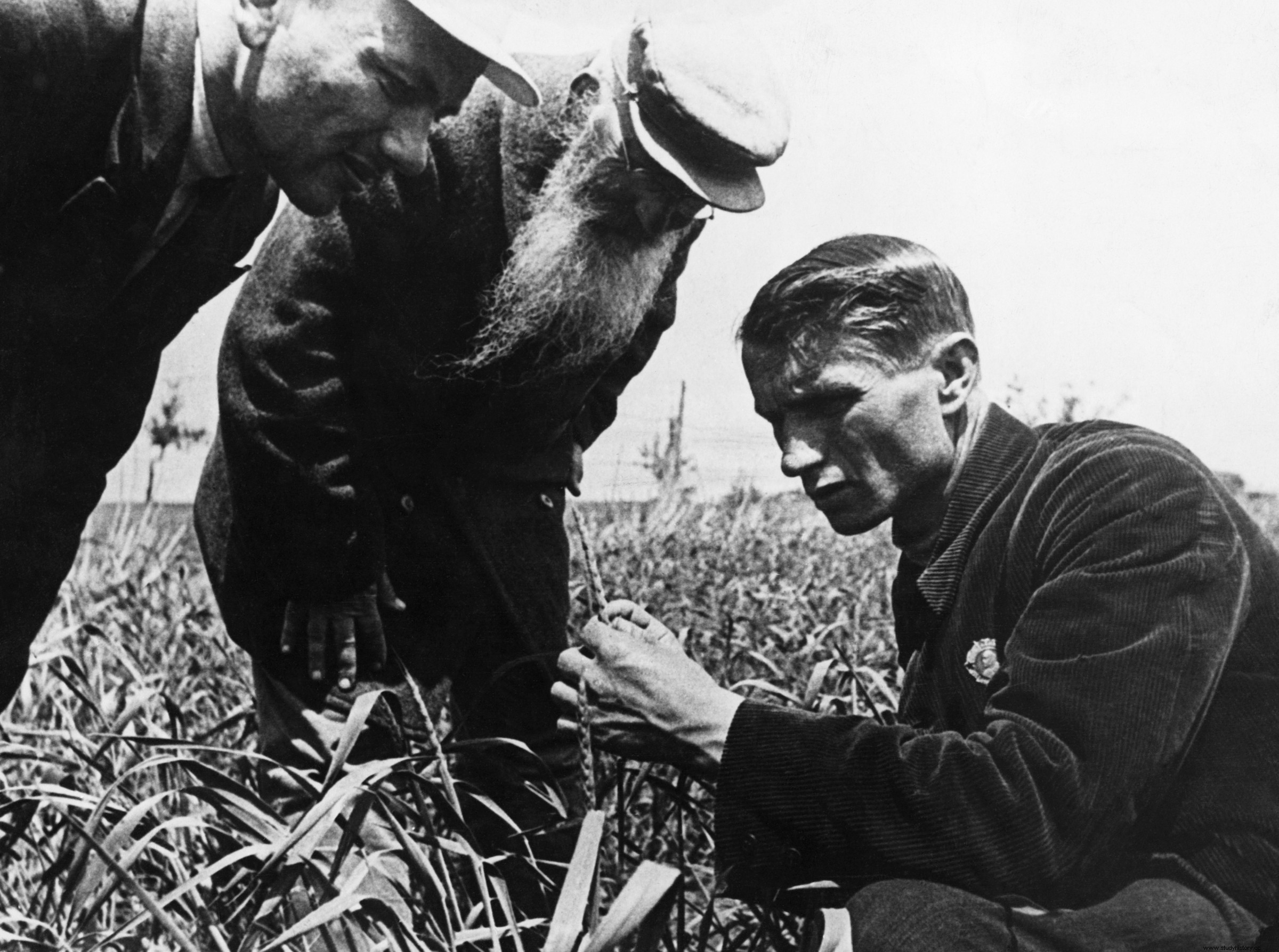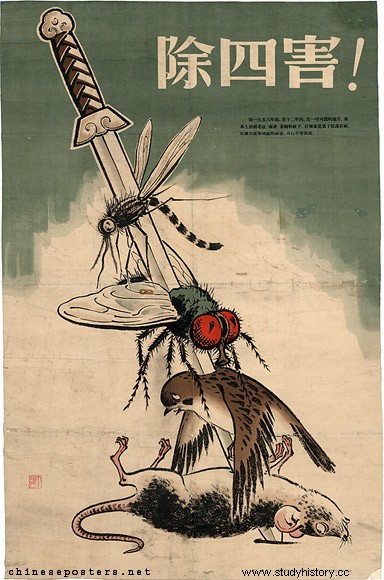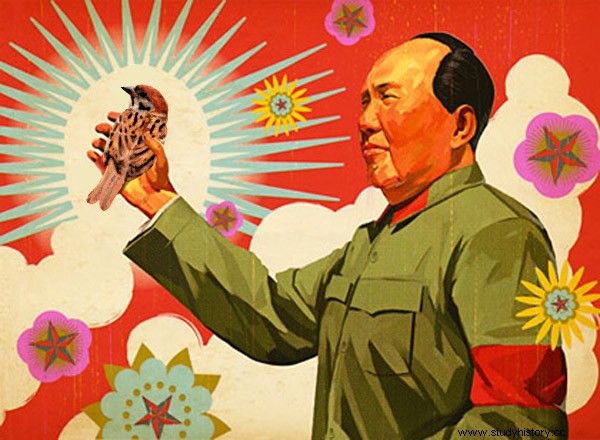Natural selection, postulated by the naturalist Charles Darwin in the Origin of Species (1859), is responsible for the evolution of adaptations of organisms to their environment. Logically, this adaptation occurs through the slow accumulation of favorable genetic changes in the population over generations. But since there are many "visionaries" who tend to turn things around, Trofim Lysenko appeared. . This Soviet biologist, whom no one could criticize or question his theories by direct orders of Stalin , he was at the forefront of research to improve agricultural production in the USSR. Many scientists, especially geneticists, saw their careers, their teachings and even their lives cut short. He even said:” genetics is a capitalist science “.

Trofim Lysenko
According to his theory, this adaptation of the species – according to Darwin, natural and throughout the generations – could be radically altered by exposing the species to appropriate environmental stimuli (such as cooling seeds to adapt them to extreme climates) and, therefore, any modification radical on a living being throughout the generations would end up being natural. It will escape no one that the end result was a disaster for Soviet agriculture. But since everything can be improved, in this case worsened, in a Lysenko lecture at the Academy of Sciences on the inheritance of acquired traits, the physicist Lev Landau he asked:
So, you argue that if we cut off the ear of a cow, its offspring and so on, sooner or later cows without ears will be born?
Yes, that's right -the biologist replied.
So Mr. Lysenko How do you explain why virgins continue to be born?
That question, to which there was no answer and that brought out Lysenko's colors, had terrible consequences for the physicist. Landau died in strange circumstances as a result of a head-on collision with a truck.
The case of Mao Zedong it has to do with the Great Leap Forward (1958), the project to make China a great power through a massive mobilization of labor to supply the lack of technology. It was intended to rapidly increase agricultural production (collectivization of the land and constitution of communes) and, based on it, promote industry. Agriculture would be the basis of the economy and industry the main factor.

In addition to launching the great economic project, Mao had to deal with a public health problem:endemic diseases such as tuberculosis, malaria or plague. The first measures, such as massive vaccination campaigns or improving drinking water supply and sanitation infrastructures, were effective in large urban centers but it was impossible to implement them among the rural population. So, the Four Plagues project was launched. :The Chinese government decreed that the species that transmit infectious diseases (mosquitoes and rats), the annoying flies and, of course, the sparrows, should be eliminated. The thing about mosquitoes (malaria) and rats (plague) has a certain logic, flies are annoying here and in China... but sparrows? Well, because they ate the grain. In Mao's words…
Sparrows are one of the worst pests, they are enemies of the revolution, they eat our crops, kill them.

China was flooded with posters calling for the slaughter of the enemies of the revolution, and the entire society, from school children to the elderly, became involved in this campaign of extermination for the sake of the health and economy of Mao's China. The result, as expected due to the alteration of the ecosystem, was catastrophic. Although it is true that the scope of certain diseases was reduced, the extermination of sparrows caused a terrible famine that caused the death of millions of people. As soon as he had been advised by scientists, Mao would have learned that the main food of the sparrows is insects and not grain - they eat it, but it barely accounts for 20% of their diet. The lack of natural predators allowed the insects to multiply and, above all, the dreaded locust plagues to devastate the crops.

So, without acknowledging errors or assuming responsibilities -of course! It was Mao Zedong-, he ended the campaign with a "Where I said, I say, I say Diego"
And how to recover the balance of an ecosystem manipulated by the will of this dangerous farmer? Well, asking the USSR to send 200,000 sparrows... and tons of grain to feed the hungry population.
